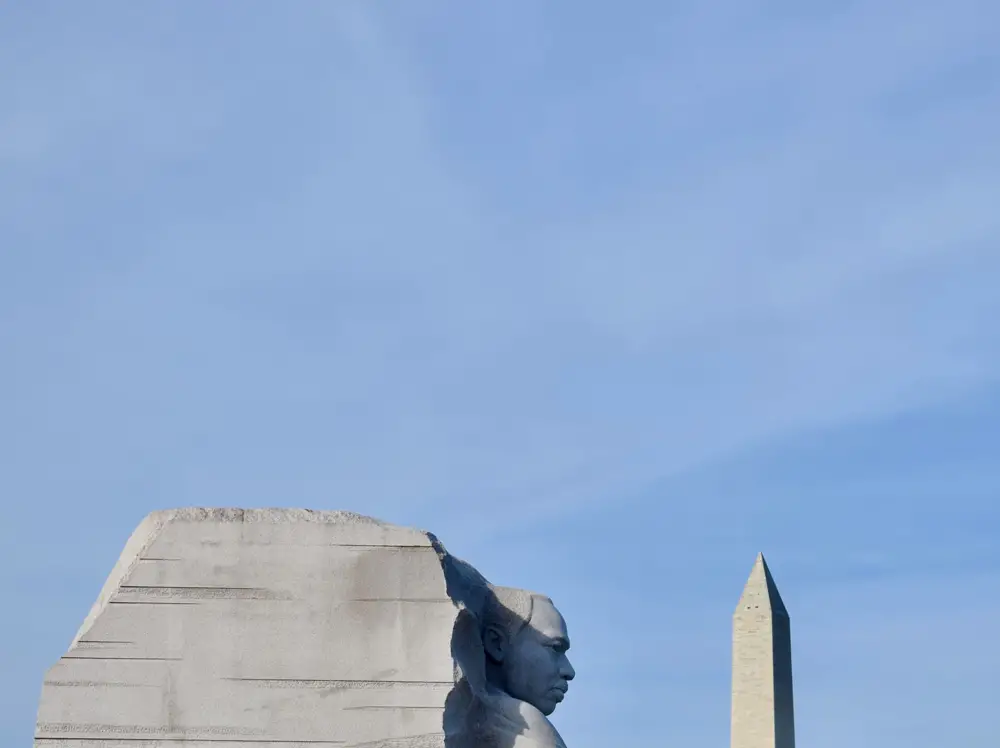
This January marks what would have been Dr. Martin Luther King, Jr.’s 95th birthday. Nearly a century after the late civil rights leader’s birth, it’s a good time to reflect on the work still to be done.
Just over 60 years ago, in his famous “I Have A Dream” speech at the 1963 March on Washington, King declared: “We refuse to believe that there are insufficient funds in the great vaults of opportunity of this nation. And so we’ve come to cash this check, a check that will give us upon demand the riches of freedom and the security of justice.”
Sixty years on, as our report “Still A Dream” highlighted late last year, there’s been some progress. The African American community is experiencing record low unemployment, record highs in income and educational attainment, and has seen a massive decline in income poverty since the 1960s.
Despite all that, the check for racial economic equality is still bouncing. Without intervention, we found it will take centuries for Black wealth to catch up with white wealth in this country.
The 1960s were years of crucial economic progress for African Americans, even as the Black Freedom struggle faced assassinations and government suppression. In 1959, when King was 30, 55 percent of African Americans lived in income poverty. By what would have been his 40th birthday in 1969 (a year after his assassination), that poverty rate had dropped to 32 percent.
Yet this substantial progress still wasn’t enough to bridge the radical and ongoing racial economic divide between Blacks and whites. And since then, progress has slowed.
Compared to the political and economic progress of the 1960s, the 21st century has been much less fruitful — even as the country saw its first African American president and a national recognition of police brutality through the Black Lives Matter protests. From 2000 to 2021, there was only a 3 percentage point decline in Black poverty (22.5 percent to 19.5 percent).
One modest area of progress: the unemployment rate for African Americans is no longer twice that of whites. Since 2018, Black unemployment has reached record lows of 5 and 6 percent, except during the 18-month recession caused by COVID-19. But as of 2021, Black unemployment was still about 1.8 times that of white unemployment.
The racial wealth divide was created by federal policies and national practices like segregation, discrimination, redlining, mass incarceration, and more. So it will require federal policy and national practices to close the divide.
 And just as massive federal investment was necessary to develop the white American middle class, so too is it essential for a massive federal investment to bridge racial economic inequality.
And just as massive federal investment was necessary to develop the white American middle class, so too is it essential for a massive federal investment to bridge racial economic inequality.
Investing in affordable housing and programs designed to strengthen homeownership for African Americans will be essential. Other important policies include investments like a national baby bond program targeted at African Americans, national health care, and breaking up the dynastic concentration of wealth that’s made our country more unequal for all Americans.
Going 60 years without substantially narrowing the Black-white wealth and income divide is a policy failure. In this election year, policies that can finally bridge the Black-white divide should be at the forefront of our national debate.
Making a dream into a reality is challenging work, but it’s something our country has the resources to attain. The national celebration of Dr. King’s 95th birthday should be a time to rededicate ourselves to this work.
Dedrick Asante-Muhammad is the chief of Race, Wealth, and Community at the National Community Reinvestment Coalition. Chuck Collins directs the Program on Inequality and co-edits Inequaity.org at the Institute for Policy Studies. They are co-authors of the report, Still a Dream: Over 500 Years to Black Economic Equality.





























Atwp says
Good writing. I wonder why should African Americans try to catch up with whites economically? Let us do what we can and move foward, so what if they have more homes, so what if they have more money. Look at the history of this country. They own almost all the banks in the country, all most all the realtors are white. That should tell us something. The figures we read are they correct? I used to believe those figures, not anymore. They had all the advantages from day one and they still have the advantage. White people run this country, they make the laws, the laws are for their advantage, nobody else. They own most of the farm land if not all the farm land. My question is why are there so many poor white people, so many homeless white people, so many hungry white people, so many uneducated white people when they run the educational system in this country.
Pogo says
@As stated
Best comment of this date.
Lynn L Tobin says
The author worries about inequality in terms of money, and home ownership. The truth is that more inequality is on its way in the form of millions of poverty stricken illegals, now flocking to the USA!!
This grand immigration experiment will provide more poverty and more inequality–courtesy of the Biden Administration! Allowing millions of people with an average education of only 6th grade into the country, will condemn taxpayers to a generation of higher taxes until these illegal immigrant’s children can work for themselves. How much better it would be to allow merit based legal immigration who would aid in helping inequality in America while bringing needed talent and professions, like Doctors.
Pogo says
@As stated
You get an A+ for rote recital of Horatio Alger’s myth for every occasion.
And an Incomplete for ignoring the actual question, “… My question is why are there so many poor white people, so many homeless white people, so many hungry white people, so many uneducated white people when they run the educational system in this country.”
And an F on your understanding of a burgeoning crisis in our own hemisphere of our one and only planet.